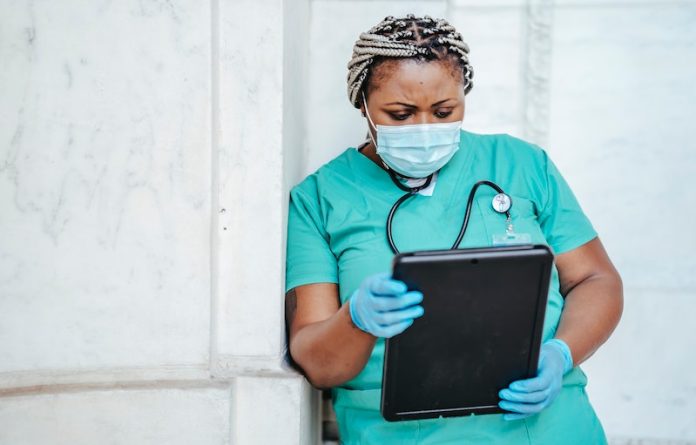
In a study from the University of Utah, scientists found four of 10 Americans surveyed reported that they were often less than truthful about whether they had COVID-19 and/or didn’t comply with many of the disease’s preventive measures during the height of the pandemic.
The most common reasons were wanting to feel normal and exercising personal freedom.
The study raises concerns about how reluctance to accurately report health status and adherence to masking, social distancing, and other public health measures could potentially lengthen the current COVID-19 pandemic or promote the spread of other infectious diseases in the future.
In the survey, the team asked more than 1,700 people from across the country to reveal whether they had ever misrepresented their COVID-19 status, vaccination status, or told others that they were following public health measures when they actually weren’t.
Screening questions allowed the health service researchers and psychologists who designed the study to evenly divide the participants: one-third who had had COVID-19, one-third who had not had COVID-19 and were vaccinated, and one-third who had not had COVID-19 and were unvaccinated.
Based on a list of nine behaviors, 721 respondents (42%) reported that they had misrepresented COVID-19 status or failed to follow public health recommendations.
Some of the most common incidents were: Breaking quarantine rules; Telling someone they were with, or were about to see, that they were taking more COVID-19 precautions than they actually were; Not mentioning that they might have had, or knew that they had, COVID-19 when entering a doctor’s office; Telling someone they were vaccinated when they weren’t, and Saying they weren’t vaccinated when they actually were.
The team also found All age groups younger than 60 years and those who had a greater distrust of science were more likely to engage in misrepresentation and/or misrepresentation than others.
About 60% of respondents said that they had sought a doctor’s advice for COVID-19 prevention or treatment.
However, the researchers found no association between COVID-19 misrepresentation and political beliefs, political party affiliation, or religion.
If you care about COVID, please read studies about new way to predict severe COVID-19 and shark antibodies may hold the key to stopping COVID-19.
For more information about COVID, please see recent studies that COVID-19 virus exploits many types of frailty and ill health, and results showing new antiviral drug combo could effectively treat COVID-19.
The study was conducted by Angela Fagerlin et al and published in JAMA Network Open.
Copyright © 2022 Knowridge Science Report. All rights reserved.



